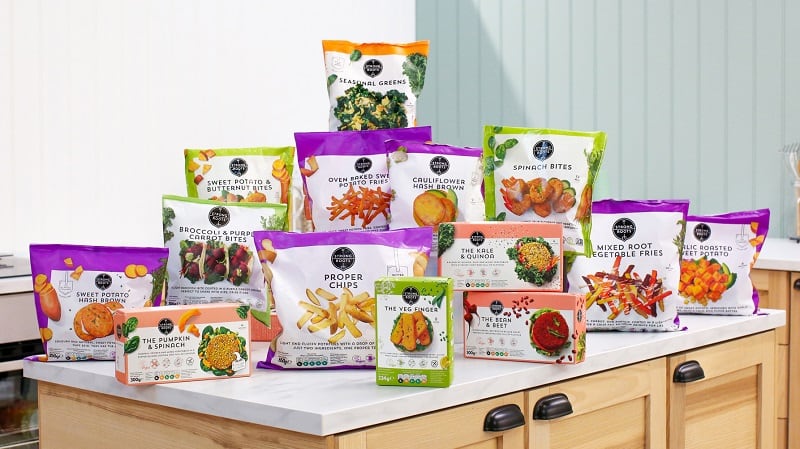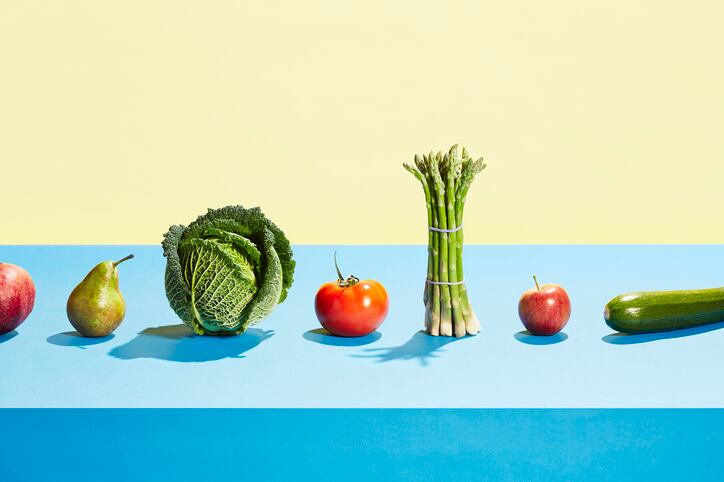The plant-based frozen food brand, whose range includes cauliflower hash browns, mixed root vegetable fries, bites and burgers, launched in Ireland in 2015 and has since expanded to 10 countries around the world.
Late last year it landed a $55 million deal with global food giant McCain. The partnership has allowed it to further its mission to ‘fix the freezer aisle’ and expand its footprint in existing markets, including the UK, Ireland and the US. It has also entered new ones in France, Benelux Australia and New Zealand and is set to launch in Germany and Canada this year.
Consumers in all of these regions are looking for convenient plant-based solutions, Strong Roots founder and CEO Samuel Dennigan told FoodNavigator.
“We've always put ourselves out there as a gateway to easier plant-based consumption. Our manifesto is literally: simple, real food. We want to help people eat more vegetables and that's why we oversimplify every element of the brand.”
The problem with meat analogues: 'Leaving one thing for another is not solving a problem'
That he rejects the march of soy and pea-based meat substitutes is therefore not a surprise. These products are at best overcomplicated and at worse counterproductive, he told us.
“We've ended up with a complete acceptance again of ultra-processed foods which we had migrated away from. This kind of guise of sustainability or better eating or reduction in animal protein consumption has disguised the overconsumption of foods that are not necessarily good in large quantities and ultimately creating further problems in agriculture like over farming and unsustainable methods in order to fill the fad increases in consumption and sales of these products over a short space of time. Leaving one thing for another is not solving a problem, it's creating another one somewhere else.”
Strong Roots consumers, he stressed, are not on the whole interested in mimicking or finding alternatives designed to appropriate the texture, flavour and appearance of real meat, but looking for elevated convenience.
“Those migrating to my products are using it as a convenient solution instead of scratch cooking fresh vegetables. Taste is where people enter into the brand and where they come back. And ultimately communicating that message of simple, real food and taste is where we primary focus our marketing efforts.”
McCain collaboration scaling food system impact
The McCain's deal has brought the company more knowledge and capital and helped it open doors to supply chains and operations. The pair are also aligned on a desire to improve the food system. McCain, for instance, has a target to implement regenerative agriculture across 100% of its potato acreage by 2030.
Strong Roots is finding agricultural partners with a focus on regenerative farming and carbon sequestration to limit its carbon footprint across the supply chain. “Soil health is incredibly important,” Dennigan explained. “Specifically, we're looking to work with producers who are re-using water in land irrigation who aren't ploughing crops back into the soil and who aren't over producing on soil. Our company mission is that food can be better, and our objective is to essentially be in constant improvement for all of the regions and all of the products that we have.”
What will this do to bottom line? The industry as whole is getting hit on multiple fronts, warned Dennigan. “Everything is more costly now. People are starting to tighten their belts and buy more value -led propositions from retail without their being any global capacity per se to make these products.”
It is a “very unfortunate time” in how to make food choices, he added. “But the beneficial thing to tasty plant-based food is that people will always need to eat, and people are going to revert to things that give them value and elevated convenience at the same time as being good for their pocket. And we're at a place in the market between 2 and 4 pounds where it's not going to be effected as much as say luxury or travel or the bigger spend areas.”




